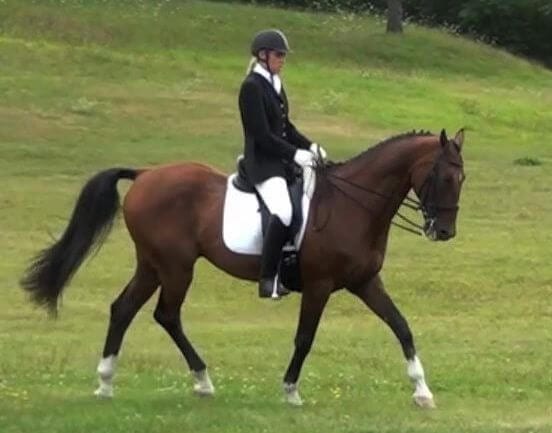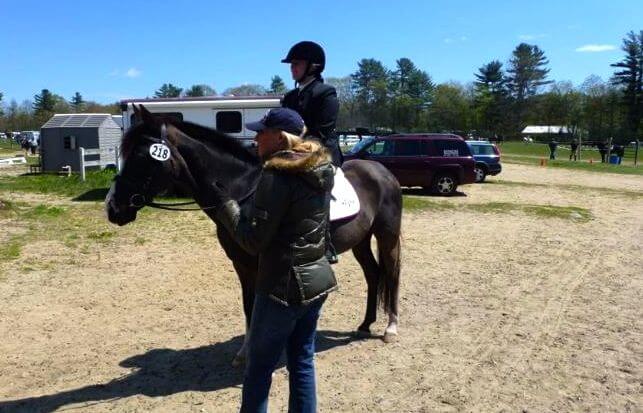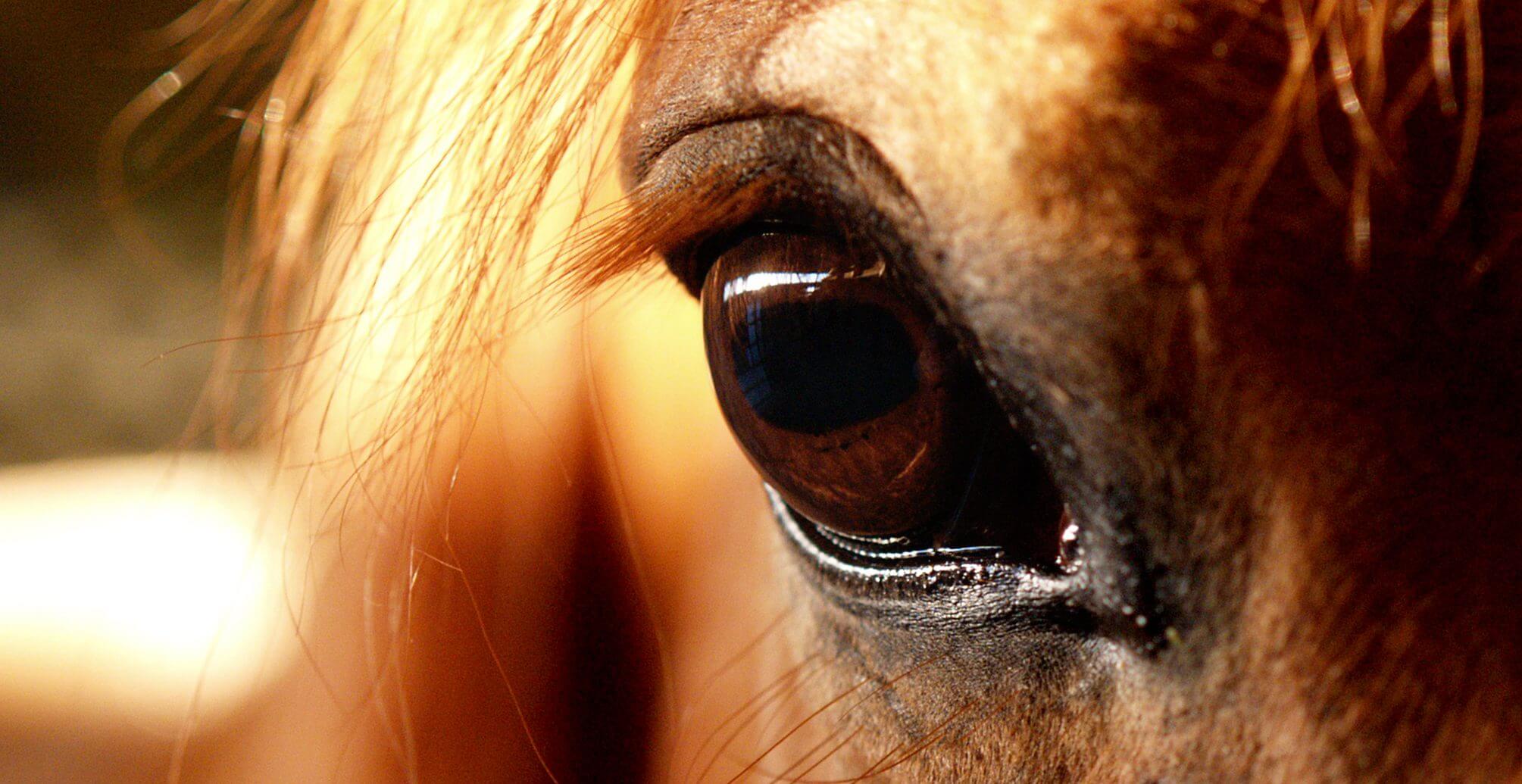Riding, Managing, and Owning the Spooky Horse
How do you own, ride, and manage a consistently “spooky” or hot horse? It can be a challenge to say the least.
As noted in prior blog editions, Calabrae is a very hot horse with a strong flee instinct. He’s lovingly referred to as “a one man army.” His fiery nature is what’s made him an elite dressage athlete and continues to drive him today even at 22 years old. Still, I can attest that the explosive behavior can feel both emotionally draining and daunting for the rider.
Below I’ve shared some of my insights and tips for managing a spooky horse, as well as a few solutions for how to address the problem:
Consider Health Concerns
Generally, horses are willing, sweet, and pleasant animals. Since horses can’t tap us on the shoulder and say “Hey, I’m in pain,” it’s up to us to decipher their behavior. If your horse starts suddenly acting out of character, i.e; bucking, rearing, bolting, SPOOKING, kicking, biting, refusing to move forward, etc., it could be cause for alarm. Chances are your horse is trying to tell you something doesn’t feel right.
Too often, I’ve seen riders brush off these actions as “My horse is difficult.” Riders sometimes relish the thought of riding a “difficult or sensitive horse”- almost as though the added challenge makes them a better rider. Rather than inventing complex theories for why your horse is acting strangely, think more black and white: ulcers, kissing spine, saddle fit, teeth, and so forth.
If a physical problem is the culprit behind your horse’s behavior, supplements or medications may become your new best friend. Calabrae, for instance, is an ulcer horse. He gets a daily antacid supplement along with Wellpride fish oil, since studies have shown high levels of omega-3s reduce ulceration and provide a calming effect.
If health issues could be a part of the problem, familiarize yourself with supplements that can help you manage your horse’s issue. They might be a good solution to taking care of your horse’s spookiness once and for all.

Avoid Giving Conflicting Aids
Riding a spooky or explosive horse can be a frightening experience. It can put a lot of riders on edge and cause us to develop bad habits, shut down, and let the horse take over. When I hear people talk about riding their spooky horses, many people say “I survived.” If you’ve hit that mentality, you are no longer thinking about how to improve your riding. You have shifted into sheer survival mode. Not only are you not accomplishing anything within your rides, but as you continue to ride, the problem often gets worse as the horse gets progressively more reactive.
To get yourself back on track, start by determining whether you could be giving your horse conflicting aids in the ring. When dealing with the infamous “corner monster,” riders often cross their inside reins over to the out in an attempt to steer their horse into the corner; however, what they are unaware of is that they are in effect contributing to the horse’s behavior. They’ve allowed their horse to bulge on their inside leg, and by not opening their outside rein, to push the horse’s shoulders over and get them off the rider’s inside leg. In response, the horse does whatever he likes.
Additionally, I see riders allowing their horses to be counter-flexed in the direction of the “scary object.” This only leads to a more pronounced reaction as your horse is allowed to give the “monster” the wild-eyed death stare!
Get Help
Another pertinent point to the spooking issue is the accompanying game of emotional roulette. Before delving into this subject, I would like to admit that I used to be guilty of getting on exactly that emotional rollercoaster. Therefore, I completely understand from an experience standpoint how difficult it can be, and I hope this advice will help other horse/rider pairs as much as it has helped my horses and me.
Many clients have told me that their horse refuses to go past a certain object or won’t go past the far left corner in the ring. I watch and often what I see is the rider unconsciously telling the horse, “No don’t go! Something bad IS going to happen.” If your seat says, “Whoa Nelly,” but you are hesitantly kicking, guess which aid the horse is going to follow!
When we become frustrated as riders, we like to blame our horse for our shortcomings. Your horse isn’t being vindictive, your horse doesn’t comprehend the ridiculous amounts of money you spend on him, and no, your horse doesn’t hate you. If you are caught with these feelings, get professional help from someone who doesn’t have the emotional investment in your horse and your situation that you do. Having someone to talk to, who can get on your horse and ride him through it, and who can bring you back from the ledge – such a person can make all the difference in turning your emotionally dysfunctional relationship with your animal into a pleasurable partnership for you both. Additionally, instruction is invaluable for LEARNING how to ride your horse through the spookiness.
Before you say, “I can’t afford lessons”, consider re-designing your budget and spending less money on equipment. If showing is your goal, judges are far more impressed by good riding and well going horses than they are by expensive show coats or fancy breeches. Not that those things aren’t nice too, but make good riding your priority. Try to be positive, and remember to be the thinking rider!

When All Else Fails
If you’ve gone through all of the above already, you may just have a hot horse that blows up for no reason. This does happen. I happen to be the proud owner of one myself.
I’ve heard several great dressage trainers say you want your horse one step away from crazy. While Calabrae isn’t always one step away from exploding, it’s quite common for him to have a spook or blow-up at least one time around the ring. Honestly, it could be every circle point or the gazebo, I just have to deal with it.
I’ve already addressed health concerns. I made the sacrifice to drive 1.25 hours each way 5-6 days a week so he could be at a barn where he felt comfortable and happy. I also did the drive for myself so I could be in a position to ride with a great trainer who taught me how to ride my horse. I have and continue to micro-manage his health so that his dreaded ulcers are under control.
A Calabrae-kind of horse isn’t for everyone and sometimes difficult decisions have to be made when the partnership isn’t enjoyable. But if the “hot horse” is for you, perhaps you’re contemplating your next move for how to to be better for your horse, as I am.
My goals: Hitting the gym and staying out of my own head!





